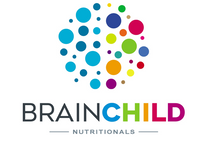Could Stem Cells Treat Autism? Newly Approved Study May Tell

Friday, Oct. 12th (HealthDay News) - Autism researchers have been given the go-ahead by the U.S. Food and Drug Administration to launch a small study in children with autism that evaluates whether a child's own umbilical cord blood may be an effective treatment.
Thirty children with the disorder, aged 2 to 7, will receive injections of their own stem cells from umbilical cord blood banked by their parents after their births. All of the cord blood comes from the Cord Blood Registry, the world's largest stem cell bank.
Scientists at Sutter Neuroscience Institute, in Sacramento, Calif., said the placebo-controlled study will evaluate whether the stem cell therapy helps improve language and behavior in the youngsters.
There is anecdotal evidence that stem cell infusions may have a benefit in other conditions such as cerebral palsy, said lead study investigator Dr. Michael Chez, director of pediatric neurology at the institute.
"We're hoping we'll see in the autism population a group of patients that also responds," Chez said. Other autism and stem cell research is going on abroad, but this study is the first to use a child's own cord blood stem cells.
Chez said the study will involve only patients whose autism is not linked to a genetic syndrome or brain injury, and all of the children will eventually receive the stem cells.

Two infusions will take place during the 13-month study. At the start of the research, the children will be split into two groups, half receiving an infusion of cord blood stem cells and half receiving a placebo. At six months, the groups will swap therapies. The infusions will be conducted on an outpatient basis with close monitoring, Chez said.
We're working with Sutter Children's Hospital, who does our oncology infusions with the same-age children," he said. "They are very experienced nurses who work with preschool and school-age kids to help them get through medical experiences."
Each child and his or her parents will be given a private room with a television and videos, beverages, and perhaps a visit from the hospital's canine therapy dog, and then a topical anesthetic will be applied to the arm to numb the skin before intravenous needle placement. A hematology expert will be giving the infusions and monitoring for safety, said Chez, who noted that each child will be watched closely for an hour and a half before heading home. They will be seen the next day as well for a safety check.
At six, 12 and 24 weeks, the researchers will measure behavioral and language changes in the children, and other changes noted by parents and the children's doctors will be logged as well.
"Parental observations like socialization and irritability scale as secondary measures are important," Chez said. Brain electrical activity and immune markers such as levels of pro-inflammatory proteins in the blood also will be tracked.
The FDA-approved study is being funded by a grant from the Cord Blood Registry Corporation, but they are not involved in the hands-on research, Chez said. The Sutter Institute for Medical Research is supporting the research with supplies and staff as well, he added.

One in 88 children -- about five times as many boys as girls -- are diagnosed with autism, according to the U.S. Centers for Disease Control and Prevention. But its cause is unknown and there is no cure for the disorder, which begins in early childhood and affects social, behavioral and language development.
Genetics and environmental and immunological factors are thought to play a role, and possibly the interaction of these and other variables, Chez said. He pointed out that autism is not actually one disorder, but stretches across a spectrum in which some children have more severe symptoms than others. One theory suggests autism occurs because cells in the brain, called neurons, are not connecting normally. Chez said stem cells may address this issue.
Chez is particularly interested in the relationship between the nervous and immune systems, and said stem cells from cord blood have been used to treat some cancers and immune disorders. In some children with autism, spinal fluid tests and brain tests have indicated that immune problems exist, and, he said, "We hope this therapy may correct some of those deficiencies."
Dr. Andrew Adesman, chief of developmental and behavioral pediatrics at Steven and Alexandra Cohen Children's Medical Center of New York, said this is a well-designed preliminary study looking at whether or not cord blood can be helpful. Adesman was not involved in the study.
"There are mixed opinions about this approach," Adesman said. "A lot of research suggests that there may be an immunological component involved in autism, but some are skeptical this specific approach will be effective. If nothing else, this study is designed such that we should have preliminary results in about a year's time."
Even if the results are positive, he said, it could take a while before the general population has access to treatments.
"The media often trumpets new findings that are hopeful, but obviously there can be significant time before research translates to the bedside. Not every finding is applicable to all patients," he said. "There are elements of premature hope in many stories."
Chez also cautioned that this is very early research.
"You can't rush good science," he said. "We don't want to give people false hope. Part of doing this is to decide whether we should be doing this."




